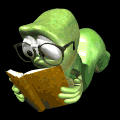| |
1. Literature
 Ian
Johnson. Ian
Johnson.
Wild Grass: Three Stories of Change in
Modern China.
These books are cause for hope
for China's future, demonstrating just how well individual Chinese can find in
terrible developments opportunities for positive reflection and heroic action.
Wang, who fled China after the Tiananmen crackdown, has compiled an impressive
collection of essays by Chinese intellectuals, mostly professors in Chinese
universities, in an effort to show that there is a Chinese intellectual realm
that is just as astonishing as the Chinese economy. The authors engage in lively
debate among themselves and are in complete command of Western thought and
philosophy. Together, they show that, whatever the troubles of their nation,
individual Chinese can, with great skill and few reservations, take up the most
sophisticated features of modern culture.
Johnson, a correspondent for "The Wall Street
Journal," draws on three stories of individuals who have turned to the
legal system to fight injustice to demonstrate his belief that the Chinese
political system is under great stress -- and that major change is imminent. In
vivid detail, he recounts a farmer's struggles against local officials; a
Beijing resident's efforts to save his beloved old city neighborhood with the
help of a lawyer; and an elderly woman's fight with the state over her practice
of Falun Gong. Although these cases do not prove that the rule of law prevails,
they show that individual Chinese at last have hope that the legal system can
help.
Reviewed by Lucian W. Pye, Foreign
Affairs.
|

One Hundred Years of Solitude
Published in 1967 as Cien
años de soledad, this novel is considered García Márquez’s masterpiece,
the break through
work that put him on the literary map. It was written in eighteen months of
solitude, where García Márquez locked himself into his room with paper and
cigarettes, writing day and night while his wife took care of family affairs.
Translated into thirty some languages, winner of four international prizes, One
Hundred Years of Solitude is certainly one of the most remarkable books ever
written, a tale that spans generations, told against a backdrop where the absurd
can seem logical and the sensible ludicrous. through
work that put him on the literary map. It was written in eighteen months of
solitude, where García Márquez locked himself into his room with paper and
cigarettes, writing day and night while his wife took care of family affairs.
Translated into thirty some languages, winner of four international prizes, One
Hundred Years of Solitude is certainly one of the most remarkable books ever
written, a tale that spans generations, told against a backdrop where the absurd
can seem logical and the sensible ludicrous.
Although a summary is close
to impossible, I will nevertheless try. In essence, the novel paints the picture
of an enduring family living in a South American town called Macondo, a
mysterious place where every day brings its inhabitants a share of wonder,
magic, grief, sorrow, and almost magical opportunities for transformation. The
book picks up the Buendía family from its establishment by a eccentric
patriarch and a tenacious matriarch, and tracks their descendants through the
family’s rise, fall, and decay. The book is woven from a rich tapestry of
unique characters, each brimming with a life that makes their passions and
quirks seem like reflections of us all – it is an emotional swirl that is
sensuous and filled with sentiment, but never sensational or sentimental. As we
follow the Buendía family through growth and decay, war and peace, hardship and
joy, we realize that we a witnessing nothing less than the slow process of life
itself – like watching rust form beautiful patterns in the timeless eye of
God.
Allen B. Ruch - 17
November 2003
2. Book of the Month
 Feiler,
Bruce. Feiler,
Bruce.
Abraham: A Journey to the Heart of Three Faiths.
The first monotheist (and, Feiler argues, the first martyr), Abraham serves
as a patriarch for three very different faiths—Christianity, Judaism, and
Islam. Feiler begins with Abraham as we meet him in Genesis: old, married to
Sarah, fatherless, and childless. But the old man fathers Ishmael through
Sarah’s servant Hagar, and then Sarah becomes miraculously pregnant with
Isaac. This is the symbolic beginning of the rift between Jews and Muslims (Jews
trace their lineage through Isaac, Muslims through Ishmael), and much of the
book explores how Jewish, Christian, and Islamic understandings of Abraham have
expressed historic and contemporary interfaith disagreements. Feiler discusses
dozens of “Abrahams,” from the Abraham used to justify pacifism to the one
seen as a model of sacrifice, the patriarch of martyrs. Along the way, Feiler
poses some fascinating theological questions, but this isn’t dry reading at
all. Like his hugely popular Walking the Bible (2000), Feiler keeps our
interest by mixing theological meditation with adventurous travelogue and sly
wit. And this quietly brilliant examination of Abraham, which begins as part
lit-crit thesis and part theological treatise, becomes, in the end, a passionate
and prayerful argument for peace between faiths. —John Green
(Booklist/August, 2002)

|
Copyright© 2003 by LIBI. Questions or comments: carguelles@libi.edu |
| | |
|
|
|
Library Hours

For your convenience the library has the following
service hours:
| Days | Hours |
|---|
| Monday - Friday | 9:00-6:00 |
| Saturday | 10:00-2:00 |
Library's Catalog:
You can access the OPAC (Online Public Access Catalog) in the library to search for books and websites.
The Elements of Citation,a complete guide to the different styles for citing
information sources. (books, websites, emails, articles, etc.)

|
|
New Websites

Knowledge Hound is the Web's biggest directory of free how-tos. We also offer
original content in our ' KH How2s' section, as well as in our. Learn how to do
it today!
For the avid do-it-yourself - or just those who need help with cooking,
parenting, or job hunting.
------------------------------------------

|

Bookworms
The book for April is :
Alice in Wonderland
Lewis Carroll
Level 2 (600 words)
Author's Biography
------------------------------------------
|
Suggested Reading
How To Use Web Search
Engines
Tips on using internet search sites
like Google, alltheweb, and Yahoo

------------------------------------------
|

Send Us Your Information
E-Newsletter
is distributed monthly. Send your
contributions on new books, websites and book reports for consideration to the LIBI Library. We reserve the right to edit submissions for
length and clarity. Deadline for submissions is the 20th of each month. |
| | | |
|

